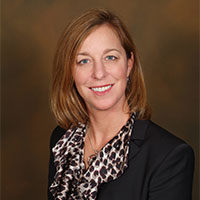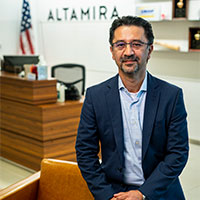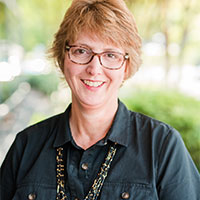Essential workers
With the pandemic’s disruption, CFOs have taken on more duties
Gary Robertson //October 27, 2020//
Essential workers
With the pandemic’s disruption, CFOs have taken on more duties
Gary Robertson //October 27, 2020//
The coronavirus pandemic has disrupted business models.
It has forced employees to seek new office sites in their kitchens, bedrooms and basements. It has ushered in hybrid educational models involving in-person and virtual learning, and imperiled funding for colleges and universities. And nobody really knows what’s coming next or when.
Meanwhile, who’s minding the store?
Usually those duties fall on the shoulders of the chief financial officer, whose responsibilities include keeping businesses and institutions on a level financial keel — or as close as possible to that — amid the chaos.
During the COVID-19 era, the CFO role has become even more crucial, says an executive at a global staffing agency with subsidiaries in Virginia.

“We have seen a change in the dynamics between the CFO and the CEO relationship almost where they are co-piloting certain initiatives,” says Heather Fannin, senior regional vice president of professional recruitment at Switzerland-based Adecco Group, the parent company of Accounting Principals, an accounting and finance staffing agency with offices throughout Virginia.
“The CFO is seen as a strategic adviser, utilizing data in looking at the various scenarios for the best course of action,” Fannin says.
Decisions about what actions to take are more important than ever, she says, and, to navigate executive teams through one of the most trying times in history, CFOs have had to make those choices quickly and decisively.
Because the CFO oversees the budget and revenues of an entire organization, Fannin, who is based in Dallas-Fort Worth and oversees operations in Southern and Southeastern states, says her staffing agency has seen more and more departments being placed under the CFO on company org charts.
During the pandemic’s early stages, CFOs were integral to C-suite efforts to ensure employee safety and transition operations to teleworking.
However, Fannin adds, “after we had gotten past that point, we’re seeing CFOs increasingly focusing on companies’ liquidity and cash reserves.”
CFOs have to be certain that their forecasting and modeling encompass various scenarios — everything from a quick return to business as usual to more pandemic problems — so that whatever comes, there’ll be a pathway forward, she adds.

“Adaptability and accountability are key today and we are seeing increased demand for proven experience in creating, leading and executing cost management initiatives,” says Jen Dodge, managing director at Accounting Principals in Glen Allen.
Time for a change
One of the most tension-filled places for a CFO to be these days is on a college or university campus, where sudden COVID-19 outbreaks can send students home — events that could cause students to seek partial refunds or credits for tuition or room and board payments.
Don Aungst, who in April became CFO at Averett University — a private institution of nearly 1,500 students in Danville — says he’s still adjusting to the upheaval the pandemic has created at colleges and universities.
“Being part of the COVID-19 Core Team during the last six months has been an experience like none other during my career,” says Aungst, who also served as CFO for Susquehanna University in Pennsylvania and has worked in numerous other financial and consulting roles for a variety of higher-ed institutions in Pennsylvania, Iowa and Ohio.
Aungst thought about retiring after recently turning 65 but decided to stay in the game due to this crucial turning point in higher education.
“Prior to the pandemic, I was sure that higher education was in need of transformative change and that private and public partnerships and mergers, acquisitions and business combinations in higher education were needed,” Aungst says. “I am now convinced that most of America is sure that these things must happen. CFOs around the world have been asked to do this in the banking industry, in the manufacturing [and] retail [industries] and many other[s] … and we CFOs in higher education need to learn to do it as well.”
The new realities brought by the pandemic have changed the perceptions of students, parents, alumni, trustees and the general public about higher education, he adds.
College and university CFOs must be change agents willing to work with other leaders and guide institutions through transformation, change and the reinvention and reimagining that has to take place to ensure the survival of higher education, Aungst says.
There have been warnings for years that many colleges are in danger of closing because they overbuilt or have insufficient financial strength or cannot attract enough students in a highly competitive environment.
“Too many institutions — not Averett — have overleveraged themselves to stay up with the Joneses: build a new science center, build a new recreation center, even if there’s one just down the street,” Aungst declares. “They have a lot of debt on their balance sheet. The pandemic makes our business model change, and those that are highly leveraged are not going to be as agile.”
No more business as usual

Adam Omar, CFO of McLean-based Altamira Technologies, which provides engineering and analytics services to the U.S. national security community, says the pandemic has also added more risk to CFOs’ jobs.
“It’s one more element to worry about,” Omar says. “We have to go to explain to our lenders and our investors that if there is an impact from the pandemic, how are we going to manage that? It’s what keeps me awake at night.”
The unpredictable side of the pandemic also has Omar worrying about what his company would do if there’s an infection in one of its offices. Altamira’s offices are now operating at about 50% to 60% of in-person capacity, he says.
Managing customer expectations — such as when a particular job will be completed — also has become more of a priority, Omar says. Underlying uncertainties regarding the nature of the pandemic and its possible effects on the workforce and deadlines for deliverables have ramped up those concerns.
“We always joke that a good CFO is needed when the company is struggling through financial performance, and a good sales guy is needed when the company is doing extremely well,” Omar says with a laugh.
He foresees that the pandemic will reshape behaviors and work patterns.
“Businesses should learn from this and become more agile. To fully support our customers, but most importantly, their missions [and] to be able to do that from more locations and remote locations,” Omar says.
Business as usual, Omar says, has gone away.
“We basically had to change our whole business model,” he says, including “how we deliver services to the government and making sure that we can do that on a timely basis in the right places and, of course, we have to do it securely.”
Because the work Altamira does for the U.S. intelligence community is largely classified, it cannot be performed from home because home networks can’t be guaranteed to be secure, Omar says.
The company had to restructure how it did business, in some cases dividing employees who were required to work from the office or at remote locations for security reasons into different shifts to achieve social distancing. Employees working on non-classified jobs were shifted to teleworking.

Stacy K. Puckett, CFO of the Virginia Bankers Association, says that because her association is so small, she’s always worn a lot of hats, which includes being responsible for everything from technology to building management.
But the pandemic has also highlighted how the roles of CFOs have expanded in recent decades to become key leadership positions in their organizations.
“If you look over the last 20 years, there are more CFOs going into higher management, even taking over as bank presidents,” when CFOs previously may not have been considered for such positions, Puckett says.
During the pandemic, Puckett’s responsibilities have included overseeing the migration of the association’s employees to telework.
The work-from-home trend, Puckett says, has opened the eyes of smaller companies to the productivity potential and advantages such working arrangements bring.
“They’re now seeing that [work from home] can work,” says Puckett, who believes that “everybody’s job is going to change” as the possibilities of teleworking become clearer.
Remote working also has expanded the talent pool for companies in rural areas where it may previously have been difficult to attract top talent.
“For the smaller or more remote companies, banks [and] associations, now all of sudden it’s opened up more of a talent pool if we can hire somebody that was in another state or a different part of the state,” Puckett says.
Due to changes such as teleworking, Fannin of the Adecco Group says organizations are now seeking CFOs with strong technology skills who can keep up with the fast pace of IT changes.
“The quicker you can automate something, the faster you can make decisions, and those decisions are critical at this point,” she says.
Read more about the 2020 Virginia CFO Awards winners.
Subscribe to Virginia Business.
t


















